Steal Like an Artist by Austin Kleon- Summary Notes and Highlights
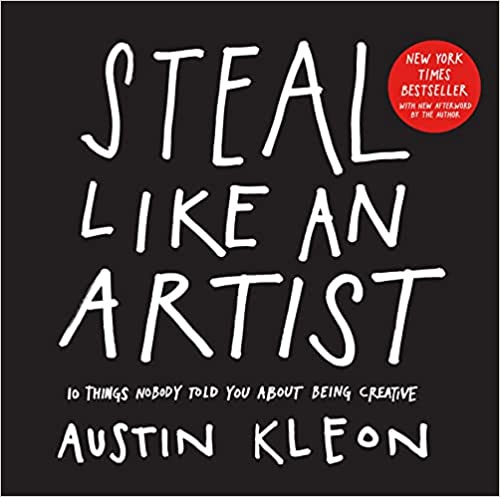
🚀 My summary of this in a few sentences
- Nobody knows who you are at the beginning, use this time to hone your skills and make mistakes when you do something creative like making a blog post like this, podcast, a YouTube video etc.
- Keep digital or paper notebooks tracking yourself or noting down and pasting any inspirations that come your way
- There is no such thing called “an original idea”. We just gradually build upon previous ideas by remixing a multitude of different pre-existing ideas.
✍️ Top Quotes
All creative work builds on what came before. Nothing is completely original.
Always be reading. Go to the library. There’s magic in being surrounded by books. Get lost in the stacks. Read bibliographies. It’s not the book you start with, it’s the book that book leads you to.
At some point, when you can do it, you have to leave home. You can always come back, but you have to leave at least once. Your brain gets too comfortable in your everyday surroundings. You need to make it uncomfortable. You need to spend some time in another land, among people that do things differently than you. Travel makes the world look new, and when the world looks new, our brains work harder.
📝 Notes
💰 1. Steal Like an Artist.
There is no such thing as an original thought.
Right now, I’m sourcing Austin’s book, but Austin himself quotes several other people to support the points he was making, which in fact, is more sources all the way down. What he and I are doing is just building upon what we already knew, or at least saying it in a different way.
All creative work builds on what came before. Nothing is completely original.
It is OK to reiterate what has been said before, because some ideas were not propagated well enough in the first place.
Some people find this idea depressing, but it fills me with hope. As the French writer André Gide put it, “Everything that needs to be said has already been said. But, since no one was listening, everything must be said again.”
“It is better to take what does not belong to you than to let it lie around neglected.”-Mark Twain
Keep a resonance journal and note anything that connects to you in some way there. It could be on your computer so that it can handle multimedia formats, but put pictures, quotes, music, sounds etc. here that speak to you at a deep level
“Steal from anywhere that resonates with inspiration or fuels your imagination. Devour old films, new films, music, books, paintings, photographs, poems, dreams, random conversations, architecture, bridges, street signs, trees, clouds, bodies of water, light and shadows. Select only things to steal from that speak directly to your soul. If you do this, your work (and theft) will be authentic.”-Jim Jarmusch
Keep a swipe file. It’s just what it sounds like-a file to keep track of the stuff you’ve swiped from others. It can be digital or analog-it doesn’t matter what form it takes, as long as it works. You can keep a scrapbook and cut and paste things into it, or you can just take pictures of things with your camera phone. See something worth stealing? Put it in the swipe file. Need a little inspiration? Open up the swipe file. Newspaper reporters call this a “morgue file”-I like that name even better. Your morgue file is where you keep the dead things that you’ll later reanimate in your work.
Find someone who inspires you, then find the people who inspired them and study all of them. Take note of how they think.
Marcel Duchamp said, “I don’t believe in art. I believe in artists.” This is actually a pretty good method for studying-if you try to devour the history of your discipline all at once, you’ll choke. Instead, chew on one thinker-writer, artist, activist, role model-you really love. Study everything there is to know about that thinker. Then find three people that thinker loved, and find out everything about them. Repeat this as many times as you can. Climb up the tree as far as you can go. Once you build your tree, it’s time to start your own branch.
Google everything. If it doesn’t exist, ask the question in a better way.
Google everything. I mean everything. Google your dreams, Google your problems. Don’t ask a question before you Google it. You’ll either find the answer or you’ll come up with a better question.
Read, read, and then read some more. The right book is out there, but you just need to start the search.
Always be reading. Go to the library. There’s magic in being surrounded by books. Get lost in the stacks. Read bibliographies. It’s not the book you start with, it’s the book that book leads you to.
Don’t worry about doing research. Just search.
Put everything out of your brain 🧠 , and externalize it in the real world. Don’t keep things bottled up in your mind, those fleeting thoughts can become fleeting notes which can become something more
Carry a notebook and a pen with you wherever you go. Get used to pulling it out and jotting down your thoughts and observations. Copy your favorite passages out of books. Record overheard conversations. Doodle when you’re on the phone.
🤔 2. Don’t Wait Until You Know Who You Are to Get Started.
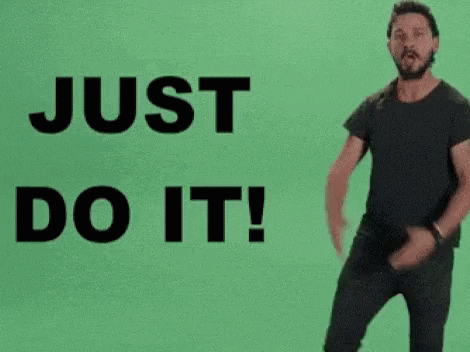
Our actions determine who we will be more than what we think we want to be in the future.
If I’d waited to know who I was or what I was about before I started “being creative,” well, I’d still be sitting around trying to figure myself out instead of making things. In my experience, it’s in the act of making things and doing our work that we figure out who we are.
None of us truly know everything there is to know. Experts just know more because they just showed up in this field of work more than you did. In the theatre of life, we can be better at what we do by learning from others but not necessarily copying them. We can put our own flavour into what we are acting as, so it becomes genuinely our own. We are not impostors once we reach this stage.
There’s this very real thing that runs rampant in educated people. It’s called “impostor syndrome.” The clinical definition is a “psychological phenomenon in which people are unable to internalize their accomplishments.” It means that you feel like a phony, like you’re just winging it, that you really don’t have any idea what you’re doing. Guess what: None of us do. Ask anybody doing truly creative work, and they’ll tell you the truth: They don’t know where the good stuff comes from. They just show up to do their thing. Every day.
We learn by copying, not just from one inspiration but from many inspirations.
We learn to write by copying down the alphabet. Musicians learn to play by practicing scales. Painters learn to paint by reproducing masterpieces. Remember:
First, you have to figure out who to copy. Second, you have to figure out what to copy. Who to copy is easy. You copy your heroes-the people you love, the people you’re inspired by, the people you want to be. The songwriter Nick Lowe says, “You start out by rewriting your hero’s catalog.” And you don’t just steal from one of your heroes, you steal from all of them.
Don’t look like your heroes, see like your heroes
What to copy is a little bit trickier. Don’t just steal the style, steal the thinking behind the style. You don’t want to look like your heroes, you want to see like your heroes.
You may fail at copying certain styles of your heroes, and that is exactly where you need to make changes that suit your own style. Imitation is not flattery, it’s adding something onto it and to the world that is true flattery.
😼 3. Write the Book You Want to Read.
Be the change you want to see. This could mean making a piece of work that is what you think WOULD be the obvious next thing your inspirations would do. Solving a problem that you want solved.
✊ 4. Use Your Hands.
Have a creative space where it’s distraction free and you’re creatively free to get your brain muscles and real muscles moving. Sometimes, creative sparks come from not being glued to a device but being out and about.
🐙 5. Side Projects and Hobbies Are Important.
Have side projects and hobbies, yes plural, go on in your life. Eventually you’ll notice connections between the different things you do. They will build on top of each other. Don’t give up on new or old passions either, they may be the very ingredient you need for your next creative spark.
Use obscurity as your learning period. People won’t remember you when you make a mistake as a beginner. They’ll remember you when there’s millions of eyes on you. The remembering curve of society is low on less popular things.
Keep working on getting better, and invite people to look at parts or the whole of your work. Somebody out there is curious or might be curious after seeing what you’re doing and where you’re going with it.
🗺️ 7. Geography Is No Longer Our Master.
Make your environment conducive to your creativity and not prone to distraction. This is entirely subjective and up to you. But one thing for sure is to put all devices that can connect to the internet far away from you in this period of creativity.
In the meantime, if you’re not into the world you live in, you can build your own world around you. (Now would be a good time to put on your headphones and cue up the Beach Boys song “In My Room.”) Surround yourself with books and objects that you love. Tape things up on the wall. Create your own world.
You can make your own world to spark your creativity. You don’t need to be upset with the hand you were dealt. Disconnect from the world of internet and take a notebook and pencil and a book with you. Enjoy being in TEMPORARY captivity
Challenge your own status quo. Change your environment. Change the people you surround yourself with with people who think differently from them. Make yourself be in an uncomfortable situation and deal with it. Through this chaos emerges wisdom, and through wisdom one can draw upon more creative thoughts.
At some point, when you can do it, you have to leave home. You can always come back, but you have to leave at least once. Your brain gets too comfortable in your everyday surroundings. You need to make it uncomfortable. You need to spend some time in another land, among people that do things differently than you. Travel makes the world look new, and when the world looks new, our brains work harder.
💛 8. Be Nice. (The World Is a Small Town.)
Surround yourself with people better than you. If you’re the best, go out of your way to find someone better. You are often the average of the people you associate with.
Don’t pick fights with people, but use that rage to fuel your creativity. Life is too short to let that negative energy make you hostile, so channel that negative into a into a positive. Use it to motivate your creativity.
Don’t expect others to approve of you. Don’t focus entirely on extrinsic value of your work, because that is a factor that is hard to control. You can only change yourself to the degree that is possible for you not that is possible for something as big as society. Being the “approver” is actually more pressure for others than it is for you. Just be happy with the praises you get and move on.
Show appreciation for someone through your blog, remove the pressure for them to respond to you privately. You can show public appreciation to a public figure. Maybe the public figure will see it, or maybe not, what’s important is you’re showing how your life has changed from their influence on you and going forward, you have documented that for all to see; documenting is a theme from Austin Kleon’s other book “show your work”.
You have no control over the way people react to your work. However, take note of reactions from people you CARE what their opinions are to filter the cesspool of the lack of constructive criticism and hate that permeates the internet. Keep a “praise” file to also remind yourself that you’re also making a difference in people’s lives which in turn tunes out the negative energy in your life.
“Modern art = I could do that + Yeah, but you didn’t.”-Craig Damrauer
🥱 9. Be Boring. (It’s the Only Way to Get Work Done.)
Be a boring average person, not a rockstar. Drugs may help certain uh musicians be more creative, but it is not conducive to someone who wishes to live a long and happy life and raise a family and wishes to have a long-term creative flow.
I’m a boring guy with a nine-to-five job who lives in a quiet neighborhood with his wife and his dog. That whole romantic image of the creative genius doing drugs and running around and sleeping with everyone is played out. It’s for the superhuman and the people who want to die young. The thing is: It takes a lot of energy to be creative. You don’t have that energy if you waste it on other stuff.
Money over everything
Most people I know hate to think about money. Do yourself a favor: Learn about money as soon as you can.
In this part, Austin emphasizes to budget your money within your means and live frugally, likely to feed that saved money into creative endeavours.
A day job puts you in the path of other human beings. Learn from them, steal from them. I’ve tried to take jobs where I can learn things that I can use in my work later-my library job taught me how to do research, my Web design job taught me how to build websites, and my copywriting job taught me how to sell things with words.
Establish a routine for your creative workflow. Get a calendar to see a visual representation of your progress.
Establishing and keeping a routine can be even more important than having a lot of time. Inertia is the death of creativity.
Figure out what time you can carve out, what time you can steal, and stick to your routine. Do the work every day, no matter what. No holidays, no sick days. Don’t stop. What you’ll probably find is that the corollary to Parkinson’s Law is usually true: Work gets done in the time available.
Find the right partners in life
Who you marry is the most important decision you’ll ever make. And “marry well” doesn’t just mean your life partner-it also means who you do business with, who you befriend, who you choose to be around. Relationships are hard enough, but it takes a real champion of a person to be married to someone who’s obsessed with a creative pursuit. Lots of times you have to be a maid, a cook, a motivational speaker, a mother, and an editor-all at once. A good partner keeps you grounded. A friend once remarked that living with an artist must make our house very inspiring. My wife joked, “Oh yeah, it’s like living with da Vinci.” She’s the best.
➖ 10. Creativity Is Subtraction.
Constraining creativity, ironically allows room for more creativity. While not mentioned in this book, there was a study that further supports this point. It is likely because limiting the choices you have allows you to easily pick what limited choices are already available.
“Telling yourself you have all the time in the world, all the money in the world, all the colors in the palette, anything you want-that just kills creativity.”
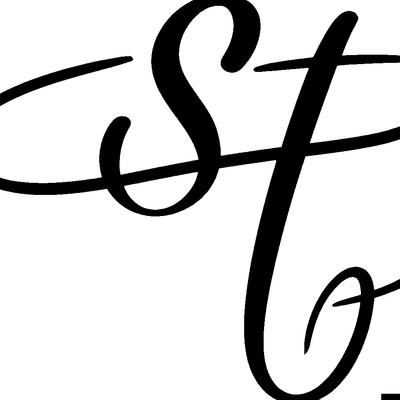
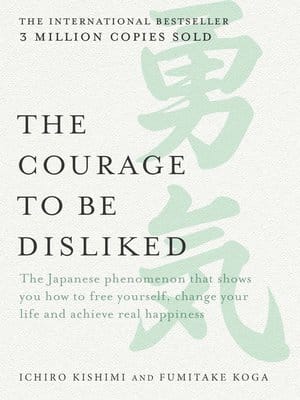
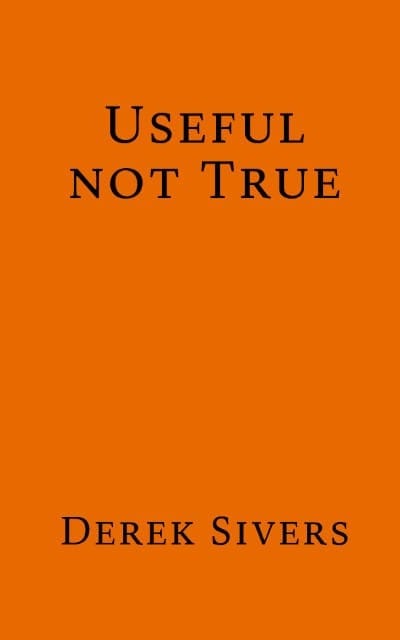
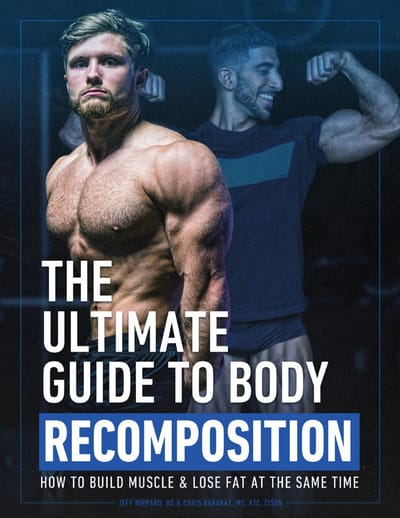
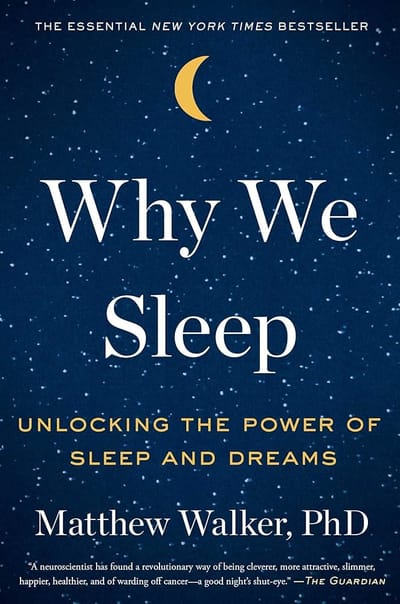
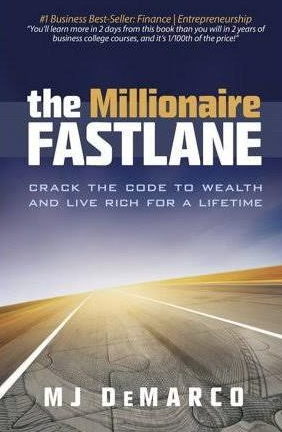
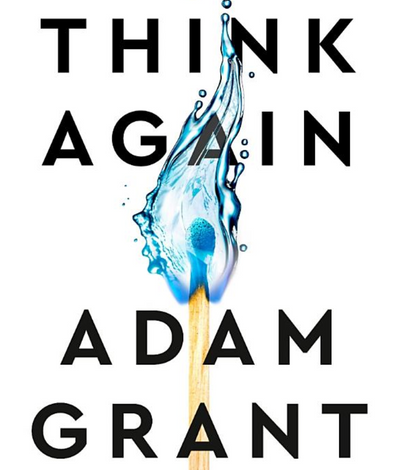
Member discussion